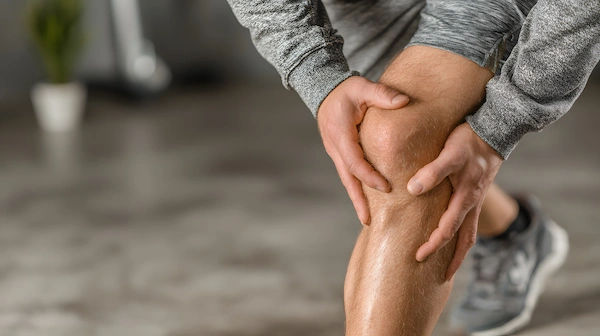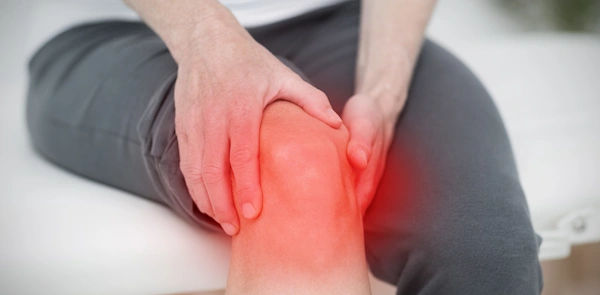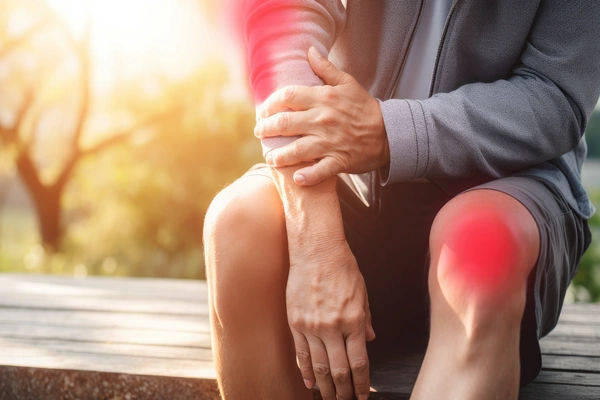Synovial Fluid: Overview and Information
Discover what synovial fluid is, its role in joint health, how it’s analyzed for diagnosing joint disorders, and what abnormal results may indicate.


If you've ever experienced joint pain, swelling, or stiffness, you may have heard the term synovial fluid. But what exactly is it, and why is it important for your joint health? In this article, we’ll break down everything you need to know about synovial fluid in simple, easy-to-understand terms.
What Is Synovial Fluid?
Synovial fluid is a thick, gel-like liquid found in your joints, such as your knees, elbows, hips, and shoulders. Think of it as the body’s natural lubricant—it helps your joints move smoothly, reduces friction, and provides essential nutrients to the cartilage (the cushioning tissue between bones).
Why Is Synovial Fluid Important?
- Reduces Friction: Acts like oil in a machine, preventing bones from rubbing against each other.
- Shock Absorption: Protects joints from impact during activities like walking or jumping.
- Nourishes Cartilage: Supplies oxygen and nutrients to keep cartilage healthy.
Without enough synovial fluid, joints can become stiff, painful, and prone to damage.
What Happens When Synovial Fluid Is Low or Abnormal?
If your body doesn’t produce enough synovial fluid, or if its quality changes, you may experience:
Common Symptoms
- Joint pain (especially with movement)
- Stiffness (worse in the morning or after sitting for long periods)
- Swelling or inflammation
- A grinding or cracking sensation (crepitus)
- Reduced flexibility
These symptoms are often seen in conditions like osteoarthritis, rheumatoid arthritis, gout, or joint injuries.
Consult Top Specialists
Causes of Synovial Fluid Problems
Several factors can affect synovial fluid health:
- Ageing: As we get older, synovial fluid production decreases.
- Joint Overuse or Injury: Repetitive movements or trauma can damage joints.
- Inflammatory Conditions: Diseases like rheumatoid arthritis can change fluid composition.
- Dehydration: Not drinking enough water can reduce fluid volume.
- Poor Nutrition: Lack of essential nutrients (like hyaluronic acid, omega-3s) affects fluid quality.
How to Keep Your Synovial Fluid Healthy?
While some factors (like aging) can’t be controlled, you can take steps to support joint health:
1. Stay Hydrated
Water is a key component of synovial fluid. Aim for 8-10 glasses a day to keep joints lubricated.
2. Eat a Joint-Friendly Diet
- Omega-3 Fatty Acids (found in fish, flaxseeds, walnuts) reduce inflammation.
- Vitamin C (citrus fruits, bell peppers) supports collagen production.
- Hyaluronic Acid-rich foods (bone broth, soy, leafy greens) help maintain fluid thickness.
3. Exercise Regularly
Low-impact activities (swimming, cycling, yoga) stimulate synovial fluid production without straining joints.
4. Maintain a Healthy Weight
Extra weight puts pressure on joints, leading to faster wear and tear.
5. Consider Supplements (if needed)
- Glucosamine & Chondroitin may support cartilage health.
- Turmeric (Curcumin) has anti-inflammatory benefits.
When to See a Doctor?
If you experience persistent joint pain, swelling, or limited movement, consult a doctor. They may recommend:
- Joint Fluid Analysis: A small sample of synovial fluid is taken to check for infections or inflammation.
- Imaging Tests: X-rays or MRIs to assess joint damage.
- Treatment Options: Physical therapy, medications, or injections (like hyaluronic acid) to improve fluid quality.
Need Expert Advice?
If you’re concerned about joint pain or synovial fluid issues, you can book a consultation with an orthopaedic specialist
on Apollo 24|7. Early diagnosis and care can help prevent further damage.
Conclusion
Synovial fluid plays a crucial role in keeping your joints healthy and pain-free. By staying hydrated, eating well, exercising wisely, and seeking medical advice when needed, you can protect your joints for years to come.
Would you like to schedule a joint health check-up?
Consult Top Specialists
Consult Top Specialists

Dr. Aarpith Kamath
Orthopaedician
7 Years • MBBS, MS Orthopaedics, Fellowship in Primary Hip And Knee Arthroplasty , Depuy Synthes ,Apollo Hospital,Jayanagar ,International fellowship in Hip and Knee Arthroplasty ,Wellton Hospital, Seoul ,South Korea
Bengaluru
Apollo Hospitals Jayanagar, Bengaluru

Dr. Mohammed Tanzeem P
Orthopaedician
5 Years • MBBS, MS Orthopaedics
Bengaluru
Apollo Medical Center, Marathahalli, Bengaluru
Dr. Mandar Borde
Orthopaedician
12 Years • MBBS, MS (Orthopedics)
Pune
DR. BORDE CLINIC, Pune
(50+ Patients)

Dr. Mithun Oswal
Orthopaedician
13 Years • MBBS, MS Orthopaedics
Bangalore
Parshwa Ortho and Womens Care Centre, Bangalore
(25+ Patients)

Dr. Prakhar Mishra
Orthopaedician
5 Years • MBBS, D.Ortho, Fellowship in Robotic knee replacement(Indo-Japan), Computer-assisted joint replacement, Arthroscopy and Sports medicine (Indo-Japan).
Bengaluru
WellnessVibes Multispeciality Clinic, Bengaluru
Consult Top Specialists

Dr. Aarpith Kamath
Orthopaedician
7 Years • MBBS, MS Orthopaedics, Fellowship in Primary Hip And Knee Arthroplasty , Depuy Synthes ,Apollo Hospital,Jayanagar ,International fellowship in Hip and Knee Arthroplasty ,Wellton Hospital, Seoul ,South Korea
Bengaluru
Apollo Hospitals Jayanagar, Bengaluru

Dr. Mohammed Tanzeem P
Orthopaedician
5 Years • MBBS, MS Orthopaedics
Bengaluru
Apollo Medical Center, Marathahalli, Bengaluru
Dr. Mandar Borde
Orthopaedician
12 Years • MBBS, MS (Orthopedics)
Pune
DR. BORDE CLINIC, Pune
(50+ Patients)

Dr. Mithun Oswal
Orthopaedician
13 Years • MBBS, MS Orthopaedics
Bangalore
Parshwa Ortho and Womens Care Centre, Bangalore
(25+ Patients)

Dr. Prakhar Mishra
Orthopaedician
5 Years • MBBS, D.Ortho, Fellowship in Robotic knee replacement(Indo-Japan), Computer-assisted joint replacement, Arthroscopy and Sports medicine (Indo-Japan).
Bengaluru
WellnessVibes Multispeciality Clinic, Bengaluru




